A delegation of the facilitation, EAC and AU visited a refugee camp in Tanzania. The objective was to explore the possibilities of Burundian repatriation. A decision challenged by some people.
Written by Agnès Ndirubusa and translated by Pierre Emmanuel Ngendakumana
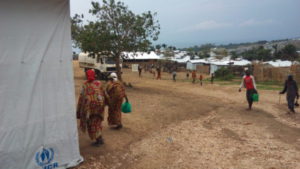
Some refugees prepare for their return while others do not.
This is a boost for Bujumbura, which is struggling to raise awareness of repatriation. This Monday, the delegation obtained a list of 28 thousand candidates for voluntary repatriation out of the 126 thousand Burundian refugees who live in this Tanzanian camp of Nduta. This happens in the context of an impasse in dialogue.
Although the facilitation requires avoiding any speculation about the reasons for this visit, the on-site sources evoke a journey with the main objective of testing the ground. It is a question of considering the repatriation of Burundians who have fled the crisis which broke out in 2015. And since then, the UNHCR figures have been increasing constantly. The organization counts 400,000 refugees scattered mainly in neighboring countries.
After Nduta, direction to Gisuru and Bumba
The following day, on Tuesday, the committee decided to make a detour to Muyinga and Cankuzo provinces. The objective of the visit was to realize the conditions of reception and security of the Gisuru and Bumba reception centers of the returnees “that would lead to a mass return of refugees,” some sources from Bujumbura say.
In the end, the delegation recommended the immediate establishment of the Tripartite Commission composed of Burundi, Tanzania and UNHCR to respond to the wishes of the refugees from Nduta camp. The latter had mentioned the need for a reception center that would allow them to arrive in the country. From that center, they would be given some aid including transport means to go back home.
This project of visiting the Burundian refugee camps is not recent. The facilitation office particularly defended it in Helsinki, Norway, in front of Burundians in exile in May. The project was challenged by the opposition.
It was perceived as coming to comfort Bujumbura government in its rhetoric that “all goes well”.
The visit was boycotted by the European Union, supposed to accompany the AU and EAC in Nduta. It decided to stay in Dar-Es -Salaam but guaranteed to take note of the delegation’s report “which will be sent directly to Brussels.”
Reactions
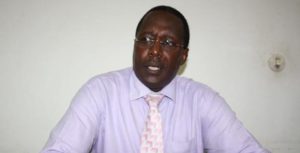 Charles Nditije: ”Propaganda for the government.”
Charles Nditije: ”Propaganda for the government.”
The coalition of the opposition in exile CNARED is against this approach. According to the President of CNARED, the role of the facilitation office is not to encourage refugees to return. Rather, it is about helping to create favorable conditions for their return. Charles Nditije says the visit is a propaganda for the government in place that will not fail to make it a political exploitation, arguing that security is restored. “This visit signals the lack of neutrality of the facilitation in Burundi crisis.”
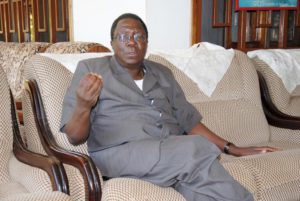 Sylvestre Ntibantunganya: “It’s not a political affair. “
Sylvestre Ntibantunganya: “It’s not a political affair. “
” The former President of the Republic says refugees can only return if conditions are favorable. For him, if the necessary conditions are met, we will witness a massive return of refugees. “Remember the return of the refugees after the election of President Ndadaye and their exile after his assassination. According to Sylvestre Ntibantunganya, instead of being polemical over the visit and making it a political history, it is necessary to manage this humanitarian crisis. “We have to create positive conditions for their return.”
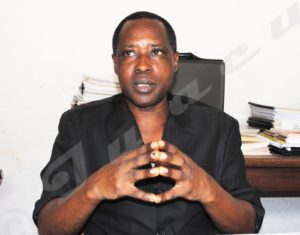 Léonce Ngendakumana: “Conditions for repatriation are not met.”
Léonce Ngendakumana: “Conditions for repatriation are not met.”
For the vice-president of Frodebu party, going to see the refugees is a good thing, encouraging them to return is another thing. According to Léonce Ngendakumana, it is necessary to convince the government to engage in peace talks to solve the problems that forced these refugees into exile. “The amendment to the Constitution, the killings and disappearances here and there prove that the conditions for repatriation are not met. “Those who return would expect to go into exile again”, he concluded.
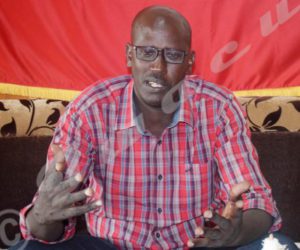 Abel Gashatsi: “I support the return of refugees.”
Abel Gashatsi: “I support the return of refugees.”
The president of Uprona political party says nothing can prevent Burundians from returning home. According to him, the political and security situation has improved in Burundi in 2017 compared to that of 2015, with the crisis that caused several people to go into exile. ” Uprona party encourages Burundians in exile to return to build the country and prepare for the 2020 elections.”
Analysis
Proving that the situation has improved
Reducing refugee camps is the objective of the EAC countries that host thousands of refugees who come from the countries of the Great Lakes, the Central African Republic, Sudan and Somalia. It is therefore normal for them to stimulate the return of Burundian refugees to their country, what is also normal for Bujumbura government to rejoice over this project which it has already whispered in the ear of the facilitation. Doesn’t this campaign to visit the refugee camps aim to promote the repatriation of refugees? Isn’t it meant to prove to the world that the politico-security situation has improved in the country of a thousand hills and that repatriation is possible from now on?
At the same time, the facilitation announced the next round for this month of July. But it is difficult to envisage a favorable outcome to this process. Some wonder what follow-up ill bring the mediation to the Arusha dialogue will bring.
It is clear that the facilitation has struggled to bring together the parties involved in the conflict for more than a year. It will have even more difficulties to maintain its impartiality. This visit, perceived as a stand for Bujumbura, will cool down the opposition. Isn’t it the end of the process? For, by calling Burundians to go back home, the facilitation somehow indicates that the crisis is over, that planets are aligned to allow the return from exile of these hundreds of thousands of refugees.
Nevertheless, beyond the calculations of some, we here speak about the life of these people who, gripped by fear, have fled their country. Conventions related to the rights of refugees must be respected. Both the person who wants to go back to the country and the one who chooses to stay must be protected.


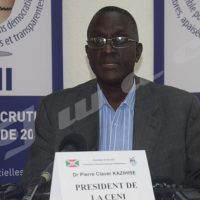
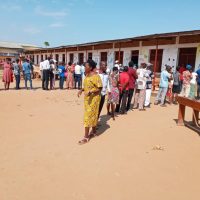
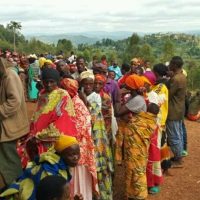
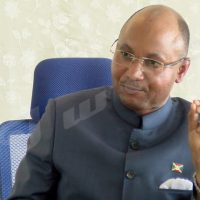













 IWACU Open Data
IWACU Open Data

